It’s there for all to see: at the heart of the United Nations and its affiliated international organizations is the determination to export radical feminism to all corners of the globe.
Earlier in this series, I looked at how feminism first garnered international influence by affixing itself to global governance bodies, most significantly the League of Nations. From there it expanded into the European Union, the United Nations, the World Economic Forum, the World Health Organization, and many others.
The great advantage of these groups is that they have power without accountability. There is no need to convince a national or local populace to vote in specific policy objectives—and little danger that officials will be voted out; policies can be imposed by fiat in the name of global economic development, justice, and women’s rights.
Thus the United Nations, founded with the goal of preventing war, now has an enormous number of offices, officials, agencies, and commissions devoted to what it calls somewhat contradictorily or perhaps tautologically “gender equality and the empowerment of women.” As Stephen Baskerville points out, “Not a single such agency exists for men (or for families that include men) despite the fact that men are the overwhelming majority of war casualties, AIDS victims, victims of occupational injuries and deaths, victims of incarceration, and more” (The New Politics of Sex, p. 249).
Why so much emphasis on women, even in an agency such as UNICEF ostensibly dedicated to helping children? As we’ll see, the agenda is, as it always is, to disenfranchise men and boys, to weaken families, and to produce increased dependence on global organizations—and thus more power centralized in the hands of those who run the UN and its many affiliates.
The stated rationale of the UN is that the empowerment of women is a force of stability in the world: bringing about more robust economic development, more sustainable environmental practices, and better education for children. Such a vast contention is unprovable, and given the history of women’s empowerment in the United States, one of the most bellicose and interventionist nations on earth, the opposite contention is just as likely. In fact, the UN has fully embraced the western feminist program: pushing the goals of sexual liberation, queer and trans identities, recognition of gender as a cultural construct, and the economic disempowerment of men.
The radical framework was set in 1979, when the United Nations General Assembly adopted the Convention on the Elimination of All Forms of Discrimination Against Women, a treaty committing member nations to empower women. Instituted in 1981, it has been ratified by 189 nations. This document’s revolutionary emphasis is apparent from articles such as those that call for the complete dismantling of gender roles in the family and in society. Article 5, for example, commits member states to modifying “the social and cultural patterns of conduct of men and women, with a view to achieving the elimination of prejudices and customary and all other practices which are based on the idea of the inferiority or the superiority of either of the sexes or on stereotyped roles for men and women.” Of course, by stereotyped roles feminists meant primarily that women should cease to be associated with mothering, homemaking, or caregiving. Women’s work in the home is recast as unpaid labor for which resentment and compensation are fully justified. Men’s sacrifices in dirty, dangerous work are not mentioned.
The convention also commits member states “To ensure that family education includes a proper understanding of maternity as a social function and the recognition of the common responsibilities of men and women in the upbringing and development of their children” (p. 195). The exact meaning of this statement is unclear, but its upshot is that no matter how many hours a father might put in at an exhausting job, he’d better still get up in the night to change his fair share of diapers. If he doesn’t, his woman is being trained to see his presence in the home as abusive, as a form of “gender-based violence,” which UN documents repeatedly define to include what is seen as coercion or psychological harm.
This revolutionary manifesto eventually became the cornerstone of UN Women, the explicitly feminist arm of the UN, founded in 2010 to “accelerate” the UN’s goals as laid out in the Convention. UN Women makes no attempt to hide its partisanship, stating clearly that its purpose is to funnel resources toward women on the rationale that women are always and everywhere disadvantaged in relation to men—even when the agency’s own statistics (often dubious and unsourced) fail to prove the case. In one document on “Economic Empowerment of Women,” we learn that “As of 2011, 50.5% of the world’s working women were in vulnerable employment, often unprotected by labor legislation, compared to 48.2% for men.” In other words, about the same proportion of women as of men have precarious work.
But that fact gives no one at UN Women a moment’s pause. Whatever the issue, whether it’s AIDS, climate change, or Covid-19, UN Women always starts from the assumption that women are hardest hit and must receive special assistance, and more than that, that helping men doesn’t help women because men oppress women. Women, of course, never oppress men. Nowhere in the UN Women documents is there any emphasis on strengthening cooperation or mutual reliance between men and women, or on building husband-wife or family-based economic partnerships. Quite the opposite: the emphasis is on separating women from men, making women aware of themselves as a subjugated group, and making women less reliant on men (and more reliant on government and global aid programs).
A glance at the home page of UN Women shows the western feminist insistence on matters of sexuality and the transgression of gender norms, which are placed above bread-and-butter issues like clean water, improved roads, or medical care. Many of UN Women’s statements run notably counter to the socially conservative nature of many developing countries. The homepage features, for example, a Statement against homophobia, biphobia, intersexphobia and transphobia, not merely advocating tolerance but proclaiming “This is a day to celebrate the diversity of sexual orientation, gender identity and expression, and sex characteristics (SOGIESC) across humanity.” Under the guise of women’s rights, UN Women wants to convince girls in Burundi and Pakistan that they may be trans or bisexual.
Another statement on the UN Women site calls for female empowerment to ensure “gender-responsive disaster risk reduction,” alleging that “The more women we have in positions of power, the more likely we are to have more ambitious and stringent climate change and disaster risk reduction policies, a stronger focus on quality of life, and better health and education outcomes for all.” No evidence, of course, is brought forward to support these rather incredible statements of female superiority.
Another feature page calls for the transformation of gender identities in domestic life, complaining about women’s unequal burden of caring, their unpaid domestic work, and the need for men to embrace “positive masculinity.” Here we see how thoroughly western feminist ideologies have transformed rights and development goals, penetrating into the most private aspects of family life to demand a radical reorientation.
In this particular document, called “Gender Equality Starts at Home,” the experience of a married couple in Kyrgyzstan, in Central Asia, is highlighted as an example of positive change: the couple attended a training session on social norms that inspired the wife to lay down the law to her husband. She is reported as saying, “We both work 40 hours a week, but he used to come home from work and lie on the couch watching TV, while I was responsible for doing all the housework in the evenings. Unfortunately, it is acceptable behaviour in our country.” No longer. Now the husband must pull his weight. If he is not able to do so, another section in the same report stresses that having their “own income” brings women more “freedom”—freedom from their husbands, we understand, if not from the organizations that provides financial assistance.
These various reports and press releases rarely mention boys and men specifically except as threats to girls and women, and as subjects for control and re-education in order that the superior leadership and caretaking skills of girls and women be allowed to flourish unimpeded. The importance of men to family life or to secure, prosperous societies is never emphasized.
No agency more starkly illustrates the transformation of the UN from a humanitarian organization to a global arm of the feminist lobby than UNICEF, originally the United Nations International Children’s Emergency Fund, now simply the UN Children’s Fund, originally established in 1946 “to help children and young people whose lives and futures were at risk.” Decades of effort during famines and disease outbreaks garnered UNICEF some moral legitimacy, until its mission began to change markedly in the 1990s with the incorporation of feminist frameworks and emphasis. Stephen Baskerville quotes researcher Douglas Silva, who has noted that “In a world in which children, both boys and girls, suffer on a massive scale … the suffering of girls now seems to take precedence at UNICEF. When boys are disadvantaged, for whatever reason, it simply seems that this disadvantage does not matter” (p. 256).
UNICEF claims to “work for every child, everywhere, to build a better world for everyone.” Yet on its “Core Commitments” page can be found links to sections on “Equity” and “Gender Equality and Empowerment of Girls and Women,” and anyone who thinks that UNICEF is still an organization primarily aimed at helping children must read the “Gender Equality” page, which explains that “Context-specific gender analysis informs the design and delivery of programmes in all sectors” of UNICEF’s work, and that “Programmes intentionally promote positive behaviour and social change toward gender equality, especially by empowering adolescent girls.” Do boys matter to UNICEF? Yes, they must be recruited to help with the empowerment of girls. We are told that “Men and boys are mobilized to support and promote gender equality and the rights and engagement of women and girls.” UNICEF is not hiding the fact that in countries where little boys are malnourished in the millions or being recruited as child soldiers, UNICEF’s priority is for them to have the opportunity to understand that their masculinity can be reshaped in feminist-compliant ways.
I will not detail all the links demonstrating the feminist bias of UNICEF. Whether discussing violence in the Democratic Republic of Congo, food scarcity for millions of children in the Horn of Africa, or the dire conditions of over one million Rohingya in a refugee camp in Bangladesh, UNICEF’s report writers simply cannot maintain a focus on children, continually turning towards the situation of “girls and women.” In their report on the situation in the eastern Congo, authors refer in one sentence to “high levels of sexual exploitation of children” and in the next sentence to “the impact on the physical and mental health of girls and women.” Suffering boys rhetorically disappear and are replaced by women, as UNICEF calls for “a halt to the large-scale sexual exploitation of girls and women.” It is well known that significant numbers of boys and men experience sexual violence in conflict zones. Just a few years ago, the United Nations Security Council formally recognized this long-ignored reality. Yet UNICEF reports as if it were not so.
In the report on the Rohingya crisis in Bangladesh, the report authors are particularly concerned about family practices, lamenting that girls are “being forced into early marriage and being left out of school as parents keep them home.” This they include in the category of “gender-based violence” amongst the Rohingya. Whether there are reasons why parents prefer to keep their daughters at home (perhaps it’s dangerous to send them to school) and whether the Rohingya have traditionally practiced early marriage for girls—there is simply no explanation. Remarkably, at a time when over one million displaced people lack access to adequate water and proper sanitation, UNICEF emphasizes the blaming of parents for making decisions about their daughters. The emphasis seems wildly out of place—though it is fully in line with feminist ideology’s obsession with the family as a site of patriarchal abuse.
The message is clear in these various UN and UN-related documents. What the world needs is not so much clean water, food security, medicine, peace treaties, and economic development, with a focus on strengthening families and supporting the shared empowerment of fathers and mothers. It needs the fruits of western feminism: women who get the message that they may be better off raising their children without men; women who see themselves as an oppressed class; and women coming to understand that sexual liberation is an important choice. We have seen the damage being wrought in the highly prosperous and stable democratic nations of the west by this ideology. The devastation promised for Africa and many other poor areas is incalculable.
Some good news may be found in the fact that some countries are not very interested in feminist revolution. The bad news is that the devastating seduction of reliance on aid monies and the promise to women that they will be better off without men, will exert its insidious power, while the useful work these organizations might be undertaking has been compromised. Unfortunately, feminists show no signs of backing off their project to control the world.
Janice Fiamengo


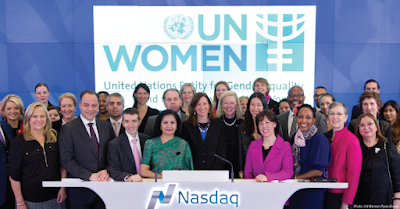
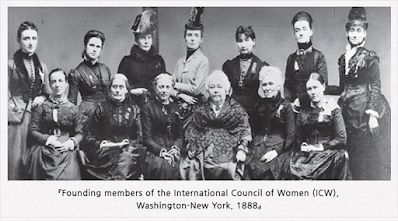

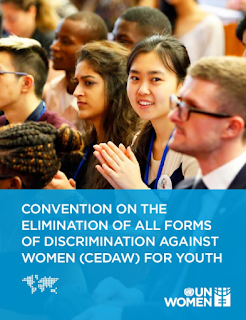



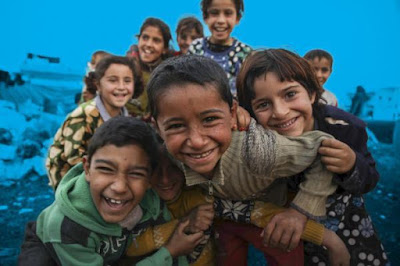


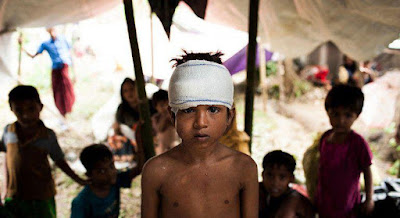
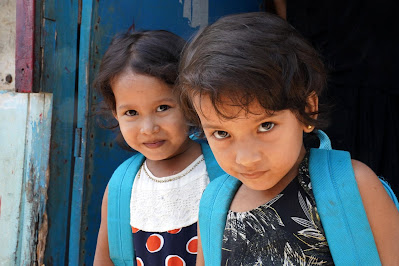
Hi Steve - Would you please consider #REUPLOADING one of the BEST VIDEOS of Janice Fiamengo ever? ✅- The Gender Empathy Gap HERE is a download link with good quality 🙏🌷 its valid for few days only.. @StudioBrule https://we.tl/t-hzXb1RoGZs
ReplyDelete